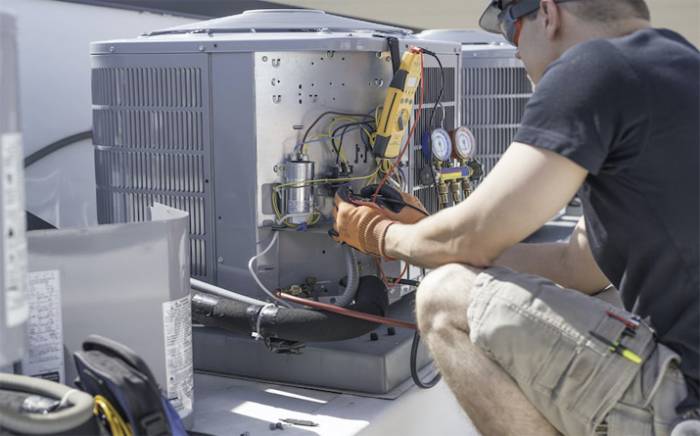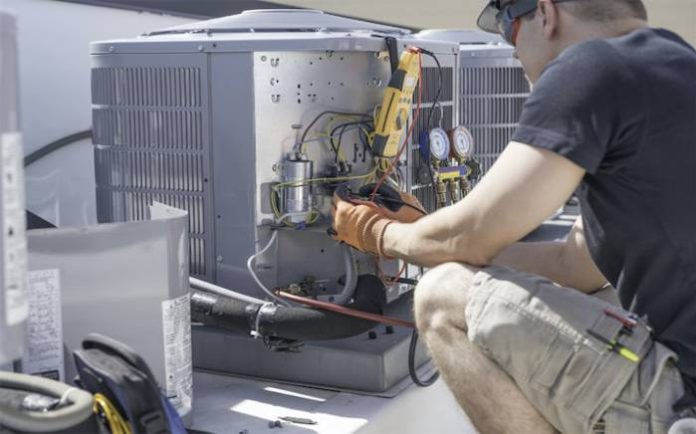Good indoor air quality (IAQ) is essential for the health and well-being of the occupants of a home or building. The HVAC system and the HVAC filter size play an important role in maintaining proper IAQ, as it controls temperature, humidity, and circulation in the environment.

To ensure optimal IAQ, it is important to understand what factors can affect it and to properly maintain your HVAC system. In this article, we will discuss what you need to know about indoor air quality and HVAC systems, as well as how to maximize IAQ with an HVAC system.
Deference Between Good and Bad Indoor Air Quality
Good IAQ is defined as the air that is free from contaminants, allergens, and other pollutants that affect human health. Poor IAQ can be caused by a variety of factors, such as the presence of mold or mildew, dust mites, smoke particles, radon gas, carbon monoxide, and volatile organic compounds (VOCs). Poor air quality can cause a variety of negative health effects, such as headaches, eye irritation, and difficulty breathing.
Factors Affecting IAQ
There are a number of factors that can affect indoor air quality, including humidity levels, ventilation, the type of HVAC system in use, the size of the air filter, and whether the air filter is regularly changed.
Contaminants in the Home
Contaminants in the home, such as dust, pet dander, mold spores, and VOCs can all contribute to poor IAQ. Regularly vacuuming and dusting surfaces can help reduce contaminants that may be present.
Humidity Levels and Temperature Variations
Humidity levels can have a significant impact on IAQ, as high humidity can encourage mold growth, while low humidity can cause dry skin and sore throats. The ideal relative humidity for indoor spaces should be between 40% and 60%. The temperature in a space can also have an impact on IAQ, as fluctuations in temperature can cause condensation that may contribute to mold growth.
Ventilation and Building Design Principles
Proper ventilation is also important for maintaining good IAQ, as it helps to remove contaminants from the air and replenish oxygen. The amount of ventilation needed will depend on factors such as the size of a room or building and how much contamination is in the air.
How to Maximize IAQ with an HVAC System
The following are some general tips for improving IAQ with an HVAC system.
Regular Maintenance Checks and Replacing Filters
One of the most important things that you can do to maintain good IAQ is to regularly inspect and service your HVAC system. It is also important to make sure that the air filter size is adequate for the space, as a too-small air filter may lead to inadequate filtration and poor IAQ. The filters should be changed every 1 to 3 months, depending on the type and size of the filter.
Cleaning Ducts & Vents for Better Air Circulation
Cleaning air ducts and vents can also help to improve IAQ, as it will allow for better air circulation in the home. To do this, you should use a vacuum cleaner with a brush or crevice tool attachment.
Investing in High-Efficiency Systems or Upgrades
Investing in high-efficiency systems or upgrades to your current HVAC system can also help to maximize IAQ. High-efficiency systems are designed with better filtration capabilities and can also reduce energy costs.
Scheduling Regular Multi-Point Inspections
Finally, it is important to schedule regular multi-point inspections of your HVAC system. During a multi-point inspection, an experienced professional can identify any potential IAQ issues and provide recommendations for how to improve the overall performance of the system.
Conclusion
Maintaining good indoor air quality is important for both physical and mental health. By understanding the factors that can affect IAQ and how to maximize IAQ with an HVAC system, you can ensure that your home or business has clean, healthy air for all occupants. Regular maintenance checks and filter replacements are essential for maintaining good IAQ, and investing in a high-efficiency system can also help to reduce energy costs.






































